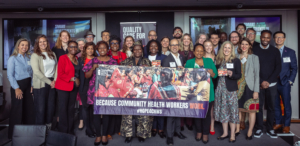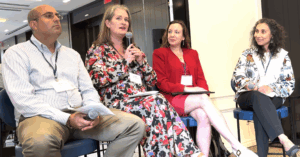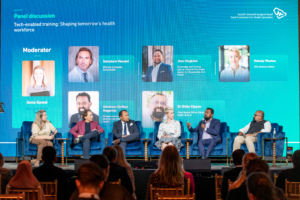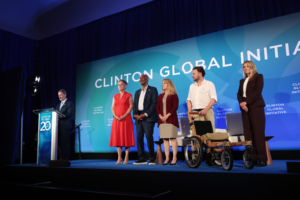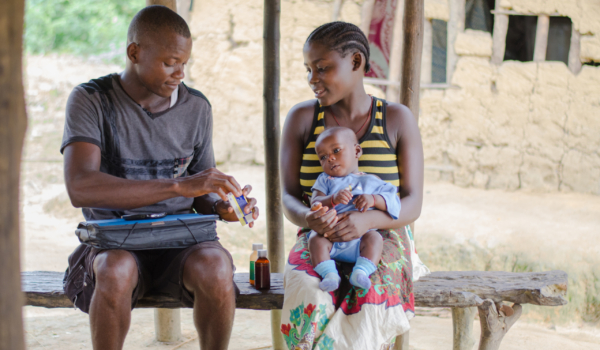Last Mile Health recently traveled to New York City for the 80th session of the United Nations General Assembly (UNGA). Each year, UNGA is a powerful reminder of the broad movement of people and organizations working to realize health for all. This year’s convening came amid disruptions to the global health funding landscape, with an abrupt aid cut of more than USD $8 billion in annual health assistance.
Across dozens of events and meetings, we heard continued dedication to the professional community health worker movement, with calls on philanthropy, national governments, and multilaterals to maintain investments in community health programs.
Here are some of our highlights from the week:
Joining the call for smart investments in tough times
“When we invest in community health workers, properly and professionally, we don’t just save money. We save lives. We stretch resources. We strengthen systems so they don’t crumble when the next crisis hits.” — Madeleine Ballard, CEO, Community Health Impact Coalition
To kick off UNGA 80, we joined the Community Health Impact Coalition for a breakfast briefing. In “Smart Investments in Tough Times: Financing CHWs for Maximum Impact,” we heard from community health workers, implementing partners, and advocates about the evidence supporting investments in strong community health systems.
Gathering with other big bet recipients to share lessons learned
“We knew it was going to take collective action, fueled by resources, to enable change at the country level around the inclusive delivery of care.” — Lisha McCormick, CEO, Last Mile Health
Big-bet investments help organizations begin to work at the size of the problems they aim to solve. They have allowed Last Mile Health to drive measurable progress in primary care access in Ethiopia, Liberia, Malawi, and Sierra Leone, reaching communities among the world’s most rural and remote. We joined Bridgespan, One Acre Fund, Skoll Foundation, and dozens of big bet recipients for a conversation about these foundational investments for scale and what comes next after catalytic growth.
Highlighting our innovative work to address non-communicable diseases at Ethiopia’s last mile
“A key pillar of our approach is access, through community health workers. We work with governments to implement entrepreneurial solutions.” — Abraham Zerihun Megentta, Ethiopia Country Director, Last Mile Health
Last Mile Health’s Ethiopia Country Director, Abraham Zerihun Megentta, shared insights into the team’s pioneering work with the Ethiopia Ministry of Health to address non-communicable diseases. He highlighted exciting progress on the distribution of near-vision glasses, advocated for investments in community health workers to reduce the non-communicable disease burden at the last mile, and emphasized how digital training models can serve remote communities.
Leading health equity sessions at Clinton Global Initiative
“Progress may not be linear or predictable. Sometimes momentum will be on your side, and sometimes it won’t be. But with patience, persistence, and consistent action, you can make a positive difference.” — James Nardella, President and Chief Program Officer, Last Mile Health
At this year’s Clinton Global Initiative, we were proud to lead a health equity working group focused on next steps for digitally enabling the health workforce, and to present this year’s health equity commitment-makers.
Hosting an Africa Frontline First roundtable
“Health sovereignty is the destination. It’s by supporting countries with financing, technical assistance, and political will to increase their domestic financing that we get there.” – Nan Chen, Co-Executive Director, Africa Frontline First
Africa Frontline First co-hosted a roundtable with Global Fund, Johnson & Johnson, and the Skoll Foundation. During the event, attendees aligned behind the next phase of Africa Frontline First and shared powerful reflections on its impact to date.

